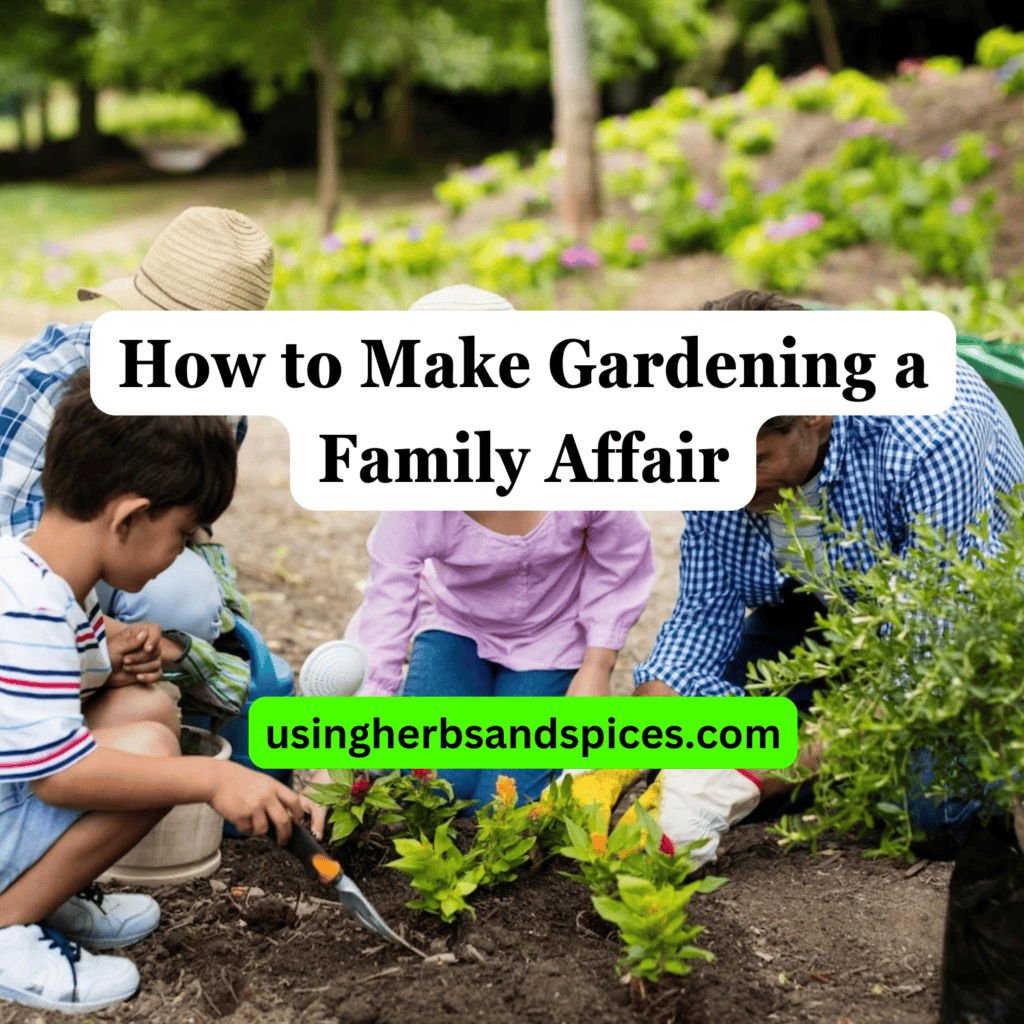Gardening as a family activity is not only a productive and rewarding hobby, but it also provides countless educational and emotional benefits for everyone involved. By working together to grow fruits, vegetables, and even flowers, families can cultivate strong bonds, learn essential life skills, and develop a sense of shared responsibility. Gardening allows family members to spend quality time outdoors, disconnected from screens and other distractions, fostering communication and teamwork in a peaceful, natural setting.

Learning Through Gardening:
Gardening is an excellent way to teach children about science, nature, and sustainability. Kids can learn the basics of biology, including plant lifecycles, how photosynthesis works, and the role of weather, soil, and water in plant growth. They also gain hands-on experience with concepts like plant zones, which fruits and vegetables grow best in different seasons, and how to manage pests that might attack crops. Older children and teenagers, in particular, may find it fascinating to understand the intricate balance of ecosystems within a garden.
Gardening also provides a platform for teaching about nutrition and food choices. By growing their own vegetables, children become more aware of where food comes from and may be more inclined to try new foods they’ve nurtured themselves. You can introduce different vegetables that are used in various cultures, expanding your family’s culinary palate and global knowledge.
Family Bonding and Communication:
One of the greatest benefits of gardening is its ability to strengthen family relationships. Gardening requires collaboration, patience, and persistence—qualities that help children and adults alike improve communication and develop a sense of accomplishment. For families with teenagers, who may be less communicative, working together in the garden provides a relaxed environment for meaningful conversations, free from distractions like texting or TV.
Gardening can also strengthen relationships between spouses or partners. The shared responsibility of caring for the garden creates time to communicate and engage in a meaningful activity together.
Fun and Creativity:
To make gardening fun, involve your children in all stages of the process, from selecting seeds to preparing the soil, watering the plants, and harvesting the produce. Let them choose brightly colored fruits and vegetables like bell peppers, strawberries, and snow peas, which not only add vibrancy to the garden but are also easy for kids to grow. Miniature vegetables like baby carrots and potatoes are particularly appealing to younger children.
Encourage creativity by allowing your kids to decorate their garden sections with colorful tools, fairy garden kits, or small garden ornaments. Personalized gardening tools in child-friendly sizes and colors can make the activity even more enjoyable. Composting can also be an exciting project for both kids and adults, as they learn how household waste can be turned into nutrient-rich soil for the garden.
Health and Wellness:
Gardening contributes to physical and mental well-being. It encourages physical activity, improves fine motor skills in children, and provides the family with fresh, organic produce. Additionally, certain plants, such as lavender, can have soothing effects, while growing and consuming fresh herbs and vegetables supports a healthy diet.
Teaching children to appreciate gardening from a young age also instills a lifelong love for nature and healthy eating. They’ll learn that the hard work they put into growing their fruits and vegetables pays off in the kitchen, where they can help prepare meals or make treats like jams and smoothies from their harvest.
By making gardening a family affair, you not only improve your home environment but also create lasting memories and valuable life lessons for your children.
